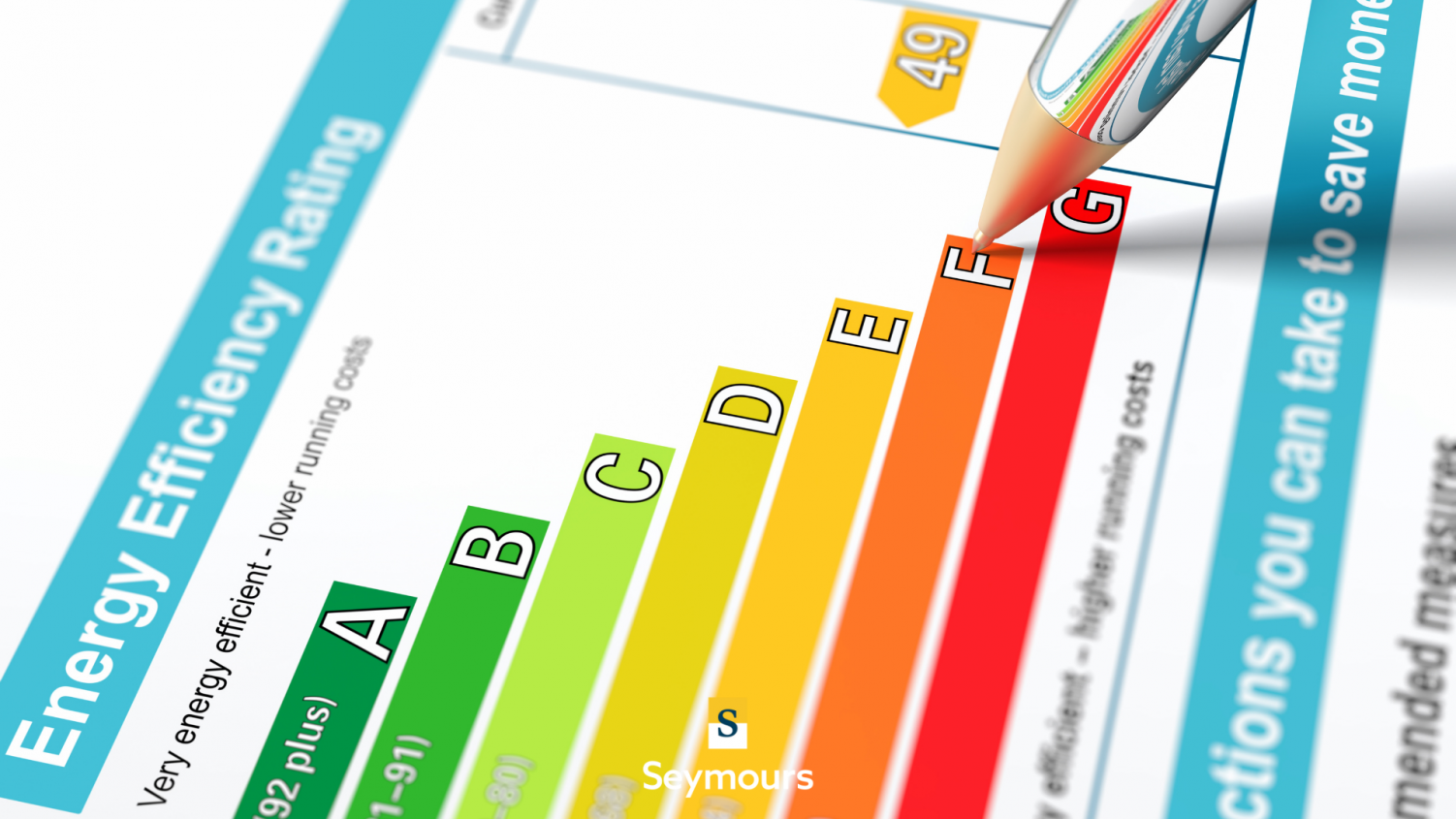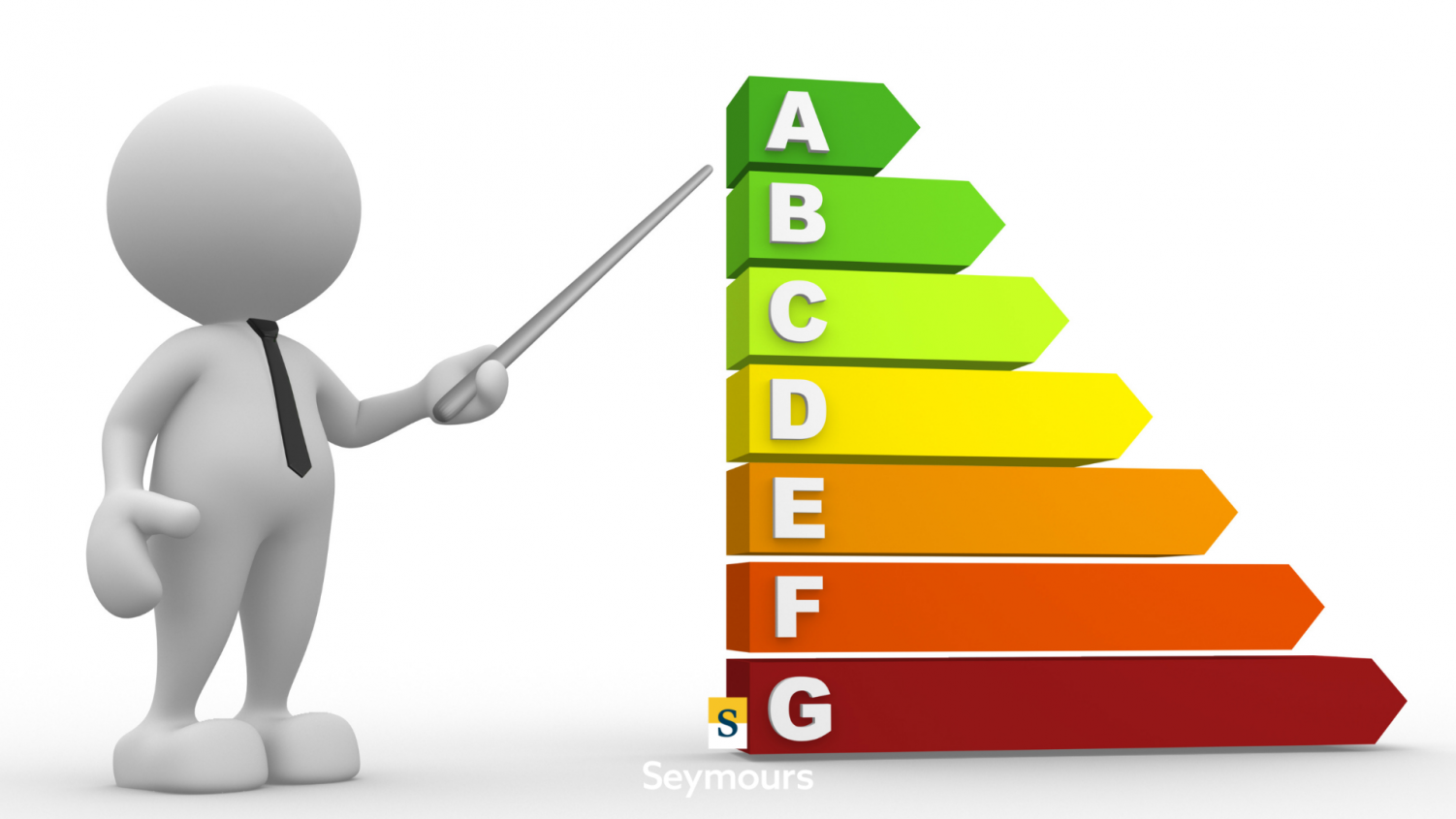What’s A Good EPC Rating & What Do They Even Mean?
06 April, 2022
When you sell a house or flat you will need an energy performance certificate (EPC) which will confirm the energy- efficiency of your property. But what’s a good EPC rating and what do they mean? Read on to find out how much an EPC costs and how to get one for your home.
What is an Energy Performance Certificate?
An EPC refers to a certificate that shows how energy-efficient your property is. Included in the document is the estimated energy costs as well as a summary of your properties’ energy performance-related features.
They also include recommendations on measures that would make your home more efficient and estimated costs for implementing any changes and potential savings you could make.
Your property will be given an energy-efficiency rating between A and G. Here, A would indicate the highest level of efficiency and G would be the worst. In most cases, the average energy performance certificate rating for a home in the UK is D.

Why EPCs are Important
A property’s EPC must be available to any potential buyers as soon as you start to market a property for sale or rent. You must get an approved domestic energy assessor to produce the EPC. For those buying or renting a property, EPCs allow you to compare the energy efficiency of different properties easily and make an informed decision to the most sustainable option.
An EPC will also highlight any energy efficiency improvements you can make, how much they cost as well as how much you could save. This can be valuable when looking to improve your current property and increase its value. Or if you’re looking to buy and renovate or rent out to tenants, you’ll need to ensure it lives up to standards..
However, it is important to bear in mind that any figures for energy use and potential savings are for a typical household in that property. They are not tailored specifically to you, your family or friends.
Buying and Renting
For Sellers
When you sell a property, you have a legal requirement to have an EPC for your home prior to selling it. This can be arranged either through your estate agent or directly with an EPC provider.
Buyers
Ensure that you receive an EPC from the seller when buying a property. They are useful as they provide recommendations that can inform any renovations that you might wish to carry out or future expenses to better the property’s efficiency overall. You can also use this information to try and negotiate the property price.
Landlords and Tenants
For buy-to-let landlords, you are legally required to make sure that your property has an EPC rating of at least E or above before taking on any new tenants or renewing existing contracts.
Tenants should ensure that landlords send the EPC before moving in, and use the cost breakdown to plan their budget.

How to Improve Your Energy Efficiency Rating
An EPC will list different ways to improve your rating and provide indicative costs. These improvements will help not only you but also buyers and tenants save on bills. Additionally, they will help lessen the environmental impact of the property.
Common recommendations include:
- Insulation for your floor, walls, loft and roof. Better insulation reduces the need for heating which in turn lowers your energy bills.
- Double glazing – Double glazed windows keep in significantly more heat and thus reduce the need for heating.
- Solar Panels – These produce greener and cheaper energy than more traditional methods and can greatly increase the value of your home.
- Low-energy lighting – The benefit of these is that they are a simple way to lessen energy bills with no structural alteration required.
What is Included with the Certificate?
Included with the certificate is the potential cost of undertaking these improvements as well as typical savings over a three year period. It also includes the estimated cost of heating, lighting and hot water after improvements are made. Additionally, it will show you total potential savings, and the EPC rating you might receive after making improvements to your home.

The Performance Page of an EPC
The performance page provides you with a detailed breakdown of each element of your property, with a description and an energy rating between 1 to 5 stars. This helps you to understand the effectiveness of its construction, heating, hot water system and lighting. This is particularly useful when compared with other properties you are looking to buy or rent.
The heat demand section looks at how much heat you will expect to use in the property and how this can be reduced using insulation. This section can be used to calculate Renewable Heat Incentive (RHI) payments. Thus it is helpful if you’re considering renewable heating options.
The Recommendations Page
Arguably the most important section of the EPC is the recommendations section. Numbers on a page mean nothing without necessary action being taken. This section will provide you with a breakdown of the recommended measures, costs, savings as well as how much each measure could improve the property’s energy efficiency rating.
These recommendations are shown in order of importance, meaning you can easily prioritise repairs or renovations where needed.
EPC Register and EPC Checker
The EPC register is the government’s online database containing every EPC in the UK. The register can be used in several ways. For example, using the register’s EPC retrieval page, you can search for a property’s energy performance certificate by postcode.
This is useful for looking up your own certificate and also for finding the certificate of a property you are considering moving into.
Should your property not already have an EPC you will be required to get one prior to selling. Many choose to do this via their estate agent for convenience purposes, but this can be a costlier option. In order to save money by arranging your EPC independently, search the EPC register’s assessor page and find an accredited domestic energy assessor
How Long Do EPCs Last?
EPCs are valid for 10 years. They were introduced to England and Wales in 2007. This means that depending on when you moved into your property, your certificate may already be valid. You can use the EPC register’s look-up tool to check if you have one and if it’s still valid.
How Much Do They Cost?
An EPC cost can vary. However, this cost will be much lower for the majority of properties. All homes are required to have an EPC before they can be sold or let. That being said there is no benefit to choosing expensive providers so make sure you shop around for the best deal.
It can often be cheaper to go directly to a domestic energy assessor in comparison to getting one through an estate agent.

EPCs for listed buildings – What is Required?
Listed buildings have been exempt from EPCs since 2013. However, this is provided that they reach the minimum standards for energy performance. That being said, the best way to check whether your building meets these standards is with an EPC.
If a listed building already had an EPC prior to the exemption, you will have to ensure that it has an E rating before renting it out and this may require some changes.
Many common EPC- recommended measures, such as installing insulation or double glazing, may harm the building’s authenticity. For this reason, it is understandable for you to want to try and avoid this.
Efficiency improvements that may cause minimal harm to the aesthetic and structural integrity of a building can include switching to a renewable energy source, installing a more efficient boiler and draught-proofing.
Summary
Energy performance certificates (or EPCs) are certificates that show how energy-efficient your property is. The document includes the estimated energy cost and a summary of your home performance-related features. As well as this, they also include valuable recommendations on measures that would make your home more efficient and estimated costs for going through with any changes. Energy efficiency within EPCs are graded between A and G – A being the highest level of efficiency and G being the lowest. In most homes, an energy performance certificate rating of D is most common.
A good EPC rating will vary depending on your circumstances. For example, for buy- to let landlords, you are required to make sure your property has a rating of at least E or above prior to taking on any new tenants or renewing existing contracts.
If you are unsure of your properties’ rating, the EPC register and checker can help. The EPC register, a government database, can be used to search an energy performance certificate by postcode. You can use this to look up your own certificate as well as find the certificate for properties you are moving into.

If you would like further information regarding an EPC, you can contact your nearest Seymours office here, or can search for properties we have For Sale or Rent.
Seymours have been “Your Property Partner” for the past 30 years.